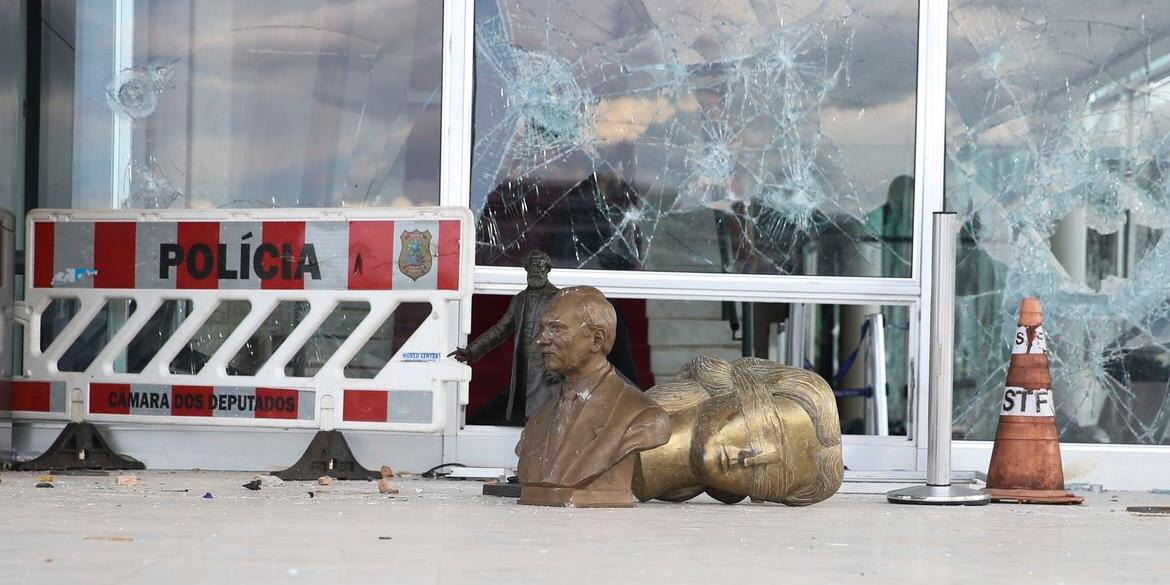EXTENDED SUBMISSIONS! Call for the Special Issue: The scenes of the politic and the politic on the scenes: a look into the contemporaneous far right theatricality
Co-editors:
Christina Fornaciari (UFV), Júlia Guimarães (UNB), Júlia Morena Costa (UFBA)
Juliana Coelho (USP), Raquel Castro (UFOP), Thálita Motta
Members of the ‘Performativity and Politics’ (Performatividades e Política) Line of Research
from the Research Group CRIA - Arts and Transdisciplinarity (Artes e Transdisciplinaridade)
(EBA/UFMG-CNPQ)
Submissions from September 2nd to December 15, 2024
Publication in the second quarter of 2025
The far right currently active in Brazil and in many other territories around the world is a heterogeneous political wing, difficult to define and of a changing nature, in which moral conservatism and the radicalization of neoliberalism converge. Emerging from local events, the far right has been gaining importance in elections and in the proposal of public policies that are neoliberal, conservative, xenophobic and contrary to human rights, for example.
This political wing has one of its greatest representations in Brazil in Bolsonarism, but it is not limited to it. Even after its defeat in the presidential elections, it continues to demonstrate strength on social media, in state and municipal governments, and in legislative houses. With its many representatives acting in different spheres, the far right in Brazil maintains a strong presence in the media and, at times, engages in international articulation. A similar phenomenon occurs in other countries such as Argentina, Chile, Portugal, Italy, Spain, among others. The performative actions of these representatives are the starting point for discussing different aspects related to the political performances of the far right.

Note: (Valter Campanato / Agência Brasil / Divulgação).
In recent years, analyses looking at the relationship between performative strategies, their effects and meanings, and the rise of the far right in Brazil, as well as in the aforementioned countries, have come to the fore. These ongoing investigations have attempted to cover, each from a different angle, a variety of aspects of the radical performances of this political field. In Brazil, the temporal scope of the research typically includes the June 2013 protests as a starting point, focusing on the impeachment campaign process against Dilma Rousseff, the rise of Bolsonarism before, during and after the 2018 election, and finally on 2023’s January 8.
To encompass this diversity of approaches and the complexity of the topic, we propose some intertwined and reiterated analytical frameworks, open to investigation and debate, such as the presence of violence, the fabrication of precariousness as a way of emulating a supposed authenticity, the connection between aesthetic and political performance, as well as reflections on restored behaviours and the aesthetics of surpassed boundaries.
These frameworks also take into account the attention economy that is overly present in the current ways in which the political agenda and performativity are propagated. They articulate many platforms of a supposedly decentralised organisation that smooths its way through the logic of social media, thus connecting different social media platforms and street protest performance, among other types of performance.
Furthermore, this Special Issue investigates theatre and artistic performances related to the topic of the far right and its strategies. Therefore, the following question represents the objective of this research proposal: in what ways can theatre, as a social form of knowledge, help us understand contemporary politics?
This question serves as the basis for this Call for Papers. Our purpose is to investigate and analyse episodes and performances of recent politics in Brazil and other territories that have experienced the rise of the far right. We are interested in reflections on the political acts of recent years within the framework of practices and theories arising from Performance and Theatre Studies. We hope to receive contributions from scientific, theoretical, and empirical research, with the purpose of expanding this dialogue.


